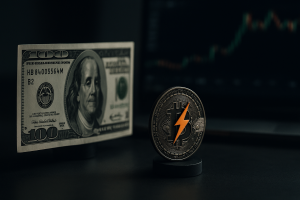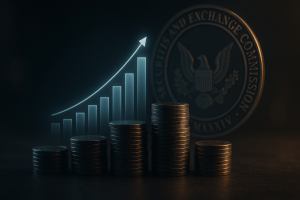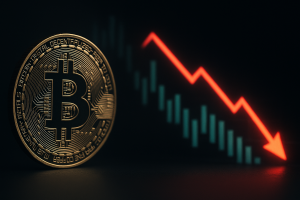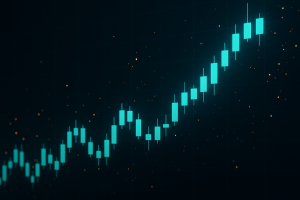Let’s be honest, bad trading days suck.
You followed your rules (or maybe you didn’t), the setup looked perfect (until it didn’t), and now you’re staring at red on the screen wondering if you’re even cut out for this.
Whether you’re trading crypto, forex, or stocks, losses are part of the game, but how you respond to them separates profitable traders from emotional ones.
In this post, we’ll walk you through how to:
- Regain emotional control after a loss
- Avoid the revenge trade spiral
- Turn mistakes into powerful lessons
- Protect your mental capital
- Build long-term consistency and resilience
Every trader hits a losing streak, but the winners learn how to bounce back stronger.
💥 Step 1: Accept That Losses Are Inevitable
The first thing to understand is: losses are normal. Even pro traders with 85% win rates (like we’ve held at EPIQ Trading Floor for 7+ months) lose trades.
The market doesn’t owe you anything. It’s not personal. It’s just probability and risk playing out.
What is in your control is:
- Position sizing
- Risk-to-reward planning
- Sticking to your strategy
The sooner you accept losses as part of the process, the faster you’ll mature as a trader.
❌ Step 2: Don’t Take Revenge Trades
After a tough loss, your brain starts screaming:
“I need to make this back NOW.”
That’s the beginning of what we call the revenge trade spiral, you enter impulsive trades with zero strategy just to “win back” what you lost.
This is where traders blow accounts.
How to prevent it:
- Step away from the charts for 15–30 minutes
- Physically walk, stretch, or breathe to reset
- Remind yourself: My next best trade will come with clarity, not emotion
At EPIQ, we coach our members to automate their next-day planning, not chase trades emotionally.
📖 Step 3: Review the Trade Like a Coach, Not a Critic
Instead of beating yourself up, become your own coach.
Ask:
- Was this trade within my plan?
- Did I misread the market structure?
- Did I move my stop? Over-leverage?
- What would I do differently next time?
At EPIQ, we log every trade and grade it like a journal. The lessons from bad trades are often more valuable than the wins.
🧘 Step 4: Take a Break, Protect Mental Capital
Bad trading days aren’t just financially draining, they’re emotionally exhausting.
Mental fatigue leads to poor decision-making.
Once your decision-making is compromised, it’s better to take the rest of the day off than to force a trade out of frustration.
Some helpful resets:
- Disconnect from charts and screens
- Get fresh air, hit the gym, journal the experience
- Talk to a trading group or mentor (not the echo chamber of Twitter)
You have to protect your mental capital just as much as your account balance.
🔁 Step 5: Reset With a Small Win Tomorrow
The best way to bounce back isn’t with a home run, it’s with a base hit.
Start your next session with:
- A simple setup you’ve mastered
- Lower size, tighter risk
- One or two trades max
Build confidence back slowly, not with ego, but with execution.
⚙️ Bonus: Build a “Bad Day Protocol”
Create a plan before the emotions kick in. Something like:
My Bad Day Reset Checklist:
- ✅ Close charts for 1 hour
- ✅ Journal 3 lessons from the loss
- ✅ Do something non-trading related
- ✅ Review tomorrow’s levels calmly
- ✅ Trade next day with 50% position size
With a system like this in place, you won’t spiral. You’ll grow.
🧠 Final Thought: Bad Days Are the Tuition Fee of Great Traders
Every successful trader has had horrible days, they just learned how to turn pain into data, and data into mastery.
Don’t quit because of one red day. Use it to level up.
📈 Ready to Trade Smarter, Not Harder?
Join the EPIQ Trading Floor, the world’s first social media platform for traders, built for growth, strategy, and mindset.
✅ Trade alerts with 85%+ win rate
✅ Real-time education and market updates
✅ Trading Academy (first section FREE)
✅ Live coaching, crypto dashboards, and macro analysis
👉 Start trading like a pro, not a gambler:
epiqtradingfloor.com
⚠️ Disclaimer:
This blog is for educational purposes only and does not constitute financial advice. Always do your own research and manage risk appropriately.










Responses